Krapp's Last Tape Show Program
Krapp's Last Tape Show Program content
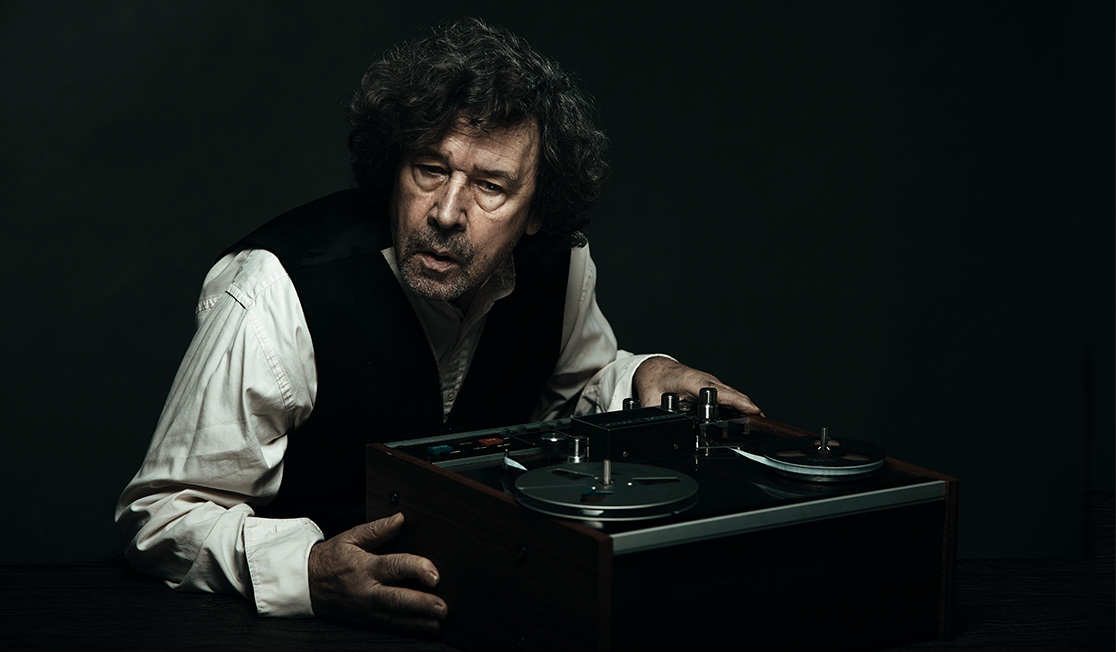
Theatre
Krapp's Last Tape
Stephen Rea
By Samuel Beckett
Directed by Vicky Featherstone
Landmark Productions
Presented by Arts Projects Australia and Adelaide Festival.
Dates: Thu 27 Feb - Sat 8 Mar
Venue: Dunstan Playhouse Theatre
Duration: 55mins, no interval


Contents
Credits
About Samuel Beckett
About Stephen Rea
Biographies
About Landmark Productions
Adelaide Festival is committed to sustainability and does not offer printed programs for most works. Our digital show programs have a contents section for easy navigation. If you would prefer a pdf that you can download or print at home, please use the button below.
Credits
Krapp Stephen Rea
Director Vicky Featherstone
Set Designer Jamie Vartan
Costume Designer Katie Davenport
Lighting Designer Paul Keogan
Sound Designer Kevin Gleeson
Audio Director Stephen Wright
Associate Lighting Designer Eoin McNinch
Production Manager Eamonn Fox
Stage Manager Ciara Gallagher
Assistant Stage Manager Ross Smith
Costume Supervisor James Seaver McGlynn
Associate Lighting Designer Eoin McNinch
Sound Engineer | Original Tapes Bill Maul
Set Construction TPS
Photographer Patricio Cassinoni
Videographer Aileen Power
Graphic Design Gareth Jones
For Landmark Productions
Producer Anne Clarke
Associate Producer Jack Farrell
Marketing Manager Sinead McPhillips
Marketing Assistant Hannah Morris
Publicity Sinead O’Doherty | O’Doherty Communications
About Samuel Beckett
Samuel Beckett (1906 – 1989) was from a solid Protestant background. On his father’s side he was descended from French Huguenots; on his mother’s side, from successful Cromwellian English planters. Beckett himself retained his Irish passport, first issued by the Irish Free State in 1927, for the rest of his life. He was the second son born to William and May Beckett at their salubrious home in Foxrock, south county Dublin on Good Friday, 1906. He was well educated, graduating first among firsts from Trinity College in 1927. He was rewarded for his great results by being given Trinity’s visiting fellowship at the École Normale Supérieure in Paris.
In a real sense Beckett’s life as a writer begins with his arrival in Paris in late 1928. He very soon meets with James Joyce who is impressed by the younger man. So much so that Joyce invites him to join the ‘twelve apostles’ who are given the task of writing interpretive essays on Joyce’s Work in Progress which was appearing serially. It will finally appear in book form as Finnegans Wake in 1939. Eugene Jolas, the editor of the magazine transition, where Beckett’s essay is first published in 1930, invites him to contribute a short story and he offers Jolas Assumption. Both the essay and the story appear in the same issue of transition. Curiously, Beckett never permitted the story to be republished during his lifetime. That year Beckett enters a competition for a poem of less than 100 lines. The poem, Whoroscope wins the L10 prize and standalone publication. So, by the time he returns to Dublin to take up his junior lectureship in the French Department at Trinity College, he is a published poet, critic and short story writer.
He quickly discovers that academic teaching is not to his liking. His expectations of his students are too high: they want the didactic - he provides the expressive. While lecturing at Trinity he works on a critical monograph on the French writer Proust which is well received on publication in 1932. He goes to Germany at the end of 1931 and resigns from his post at Trinity by letter.
After a brief holiday he goes to Paris to set up as a professional writer. In short order he produces his first novel, Dream of Fair to Middling Women. It fails to find a publisher in London but a sympathetic reader for Chatto and Windus advises Beckett to re-jig the novel as a series of linked short stories.
Beckett’s dire financial condition drives him back to his parents’ house in Dublin.
In a novel written in the late thirties an eponymous character, Murphy, is described as ‘a chronic emeritus living on small, charitable sums.’ This is true of Beckett’s situation in the early thirties. He had been expensively educated, had secured an academic post with good prospects of advancement but had thrown it all away.
Living in his parents’ house caused trouble in the house. Beckett buckled down and re-jigged his novel and Chatto and Windus accepted it for publication. The family was thrown into chaos when the father suffered a heart attack in early 1933. A second fatal attack occurred a week later. Beckett was devastated because he had been closer to his father, who had been covertly more supportive of his son than the mother knew. 1934 saw the publication of More Pricks Than Kicks, the re-jigged novel. It was promptly banned in Ireland by censors who were no doubt unfamiliar with the letters of St. Paul.
The most immediate result of publication was the worsening of the situation at Cooldrinagh. Scandal and shame had been added to insult and injury. Beckett’s formerly robust health went into decline and he suffered a nervous collapse. He was advised to undergo psychotherapy. Such therapy was not available in Ireland so Beckett’s longsuffering mother felt obliged to cover her son’s expenses in London.
The treatment was successful and Beckett read deeply in the available psychological literature during the therapeutic programme. He also began another novel and came to the view that his relationship with his mother would work best at a distance. Still without means except for a small patrimony from his father’s estate he returned to Dublin to finish his novel, working in an attic room of his late father’s offices on Clare Street. To the difficulties with his mother was added, in October 1937, the acceptance by the Irish electorate of the so-called De Valera Constitution. Before the end of the year Beckett went into ‘voluntary exile’ in France.
Within a month he was the victim of a random knife attack on a Paris street which he was lucky to survive. He corrected the proofs of his new novel while in hospital. Murphy was well reviewed but sales were disappointing. Beckett met up with a woman, Suzanne, whom he had known when he worked at the ENS some years earlier and within a couple of months they started to co-habit in Paris. In fact they were to stay together until her death in 1989, just a few months before his own.
Beckett was visiting his mother when war was declared in September, 1939. He immediately returned to Paris to join Suzanne. After Paris was occupied by the Nazis, Beckett joined the French resistance. He and Suzanne fled to the Unoccupied Zone when the security of his resistance cell had been breached. They carried very little with them but Beckett had the developing manuscript of a new novel, Watt. This he had almost finished by the time the war was coming to a close and they could return to Paris. He completed it in Paris and had no success in finding a publisher in London.
He returned to Dublin to visit his mother whom he hadn’t seen since 1939. While in Dublin he discovered that postwar restrictions on the movement of money meant that he could not carry his accumulated patrimony back to Paris and, even more frustrating, the provisional government in Paris refused entry to all aliens. He overcame these restrictions by accepting a six month contract with the Irish Red Cross as a driver and storekeeper at a field hospital to be provided by the organisation at the flattened town of St. Lô in Normandy.
He was back in France by August 1945 and dutifully fulfilled his contract with the Red Cross. By February, 1946 he was back home in Paris and a huge change happened in March. He was writing a brief prose text (a novella) in English and, shortly after starting, he drew a line across the page he was writing and finished the text in French. What he later called ‘the siege in the room’ had begun. Between that date and the beginning of 1950 Beckett wrote, in French, four novellas, four novels and two plays. The change in the language of composition enabled a surge in creativity, initially in French but in English as well. In fact, by the mid-fifties, Beckett’s work created an avid audience in two languages but, to be really accurate, a worldwide audience.
The Beckett canon contains some 34 dramatic pieces for theatre, radio, television and film. His first two major plays – Waiting for Godot and Endgame were written in French. He wrote Krapp’s Last Tape in English in the latter half of the fifties under the working title The Magee Monologue and Patrick Magee was the first actor to play Krapp. His fourth major play Happy Days was also written in English. The canon also contains multiple prose works and, mixed in, there is much poetry. He became the anchor of writing in two languages in the latter half of the twentieth century. He was awarded the Nobel Prize for Literature in 1969 and was chosen as the first Saoi of Aosdána.
Gerry Dukes
Dublin 2023
About Stephen Rea
Krapp
Stephen Rea is one of the foremost actors of his generation, coming to worldwide attention when he was nominated for the Academy Award for Best Actor for Neil Jordan’s The Crying Game in 1992. He has enjoyed great acclaim on Irish and international stages through his collaborations with playwrights Sam Shepard, Brian Friel and Enda Walsh.
Following his debut at the Abbey Theatre in Dublin, he moved to London. His early experimental work with veterans of LaMama and Nancy Meckler’s Freehold Theatre Company was followed by many leading roles at the National Theatre, including The Playboy of the Western World and The Shaughraun.
His theatre career spans several decades, with many memorable highlights. These include establishing the groundbreaking Field Day Theatre Company with Brian Friel in the 1980s, with whom he appeared in many plays, including Tom Kilroy’s Double Cross; his friendship and collaboration with Sam Shepard, which saw him star in Sam’s directorial debut of his play Geography of a Horse Dreamer in 1974 and continued when Stephen appeared in Kicking a Dead Horse and Ages of the Moon, both at the Abbey Theatre and in New York; his acclaimed performance in Enda Walsh’s Ballyturk for Landmark Productions and Galway International Arts Festival; and, most recently, international critical acclaim on both sides of the Atlantic for his powerful and deeply disturbing performance in Cyprus Avenue, an Abbey Theatre and Royal Court Theatre co-production, which enjoyed a lengthy run in New York in 2018.
His career on stages across Dublin, London and New York has taken place in tandem with his award-winning film and television career. In addition to his Academy Award nominated performance as Fergus in The Crying Game, highlights of his many film credits include Breakfast on Pluto, Michael Collins, V for Vendetta, The End of the Affair and Black ’47, amongst many others. On TV, Stephen won critical acclaim for his remarkable performance in The Honourable Woman, which also garnered him a BAFTA award, and he has most recently appeared in The Stranger, War and Peace, Flesh and Blood, the Emmy-nominated Counterpart, and The English for BBC/Amazon.
The Tapes
I had no certainty that one day I might play Krapp, but I thought it a good idea to prerecord the early tapes so that the voice quality would differ significantly from that of the older character, should the opportunity ever arise to use it.
So I politely asked my good friends Stephen Wright, fine radio producer, and Bill Maul, genius sound engineer, to record the appropriate pieces.
They were happy to assist and their work was, as always, superb.
That was that, and I forgot all about it.
And then one day twelve years later, Anne Clarke, gifted theatre producer, invited me to play Krapp, directed by my long-time collaborator, awesome theatre director Vicky Featherstone.
And, after a few days’ panic, I agreed.
Why wouldn’t I? After all, I had the early tapes.
Stephen Rea
Dublin, January 2024
Biographies
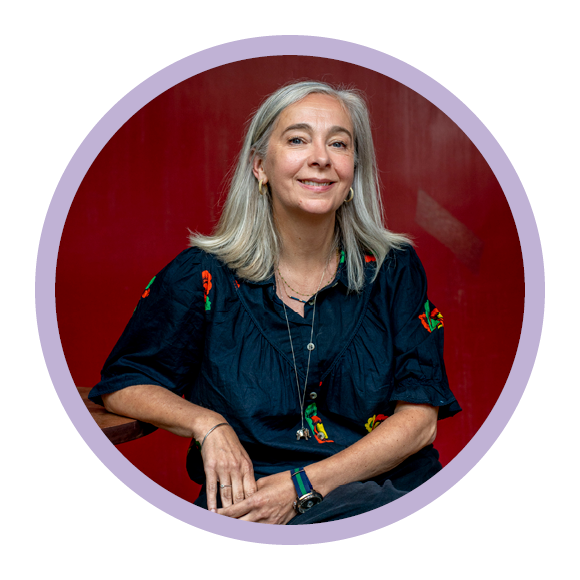
Vicky Featherstone
Director
Vicky was Artistic Director of the Royal Court from 2013 – 2023. She was the inaugural Artistic Director of the National Theatre of Scotland from 2005 – 2012 and Artistic Director of Paines Plough from 1997 – 2005. As a director focusing on new writing and living playwrights, Vicky has directed over 50 world premieres by some of the UK’s leading playwrights and has been responsible alongside her teams for developing some of the finest and most influential new voices of our time. Her work has toured extensively throughout the UK and internationally, and has won many awards.
Her work as director includes, for the Royal Court: Cuckoo by Michael Wynne, all of it by Alisdair McDowell (and Avignon Festival), Jews. In Their Own Words [co-director], The Glow by Alisdair McDowell, Maryland by Lucy Kirkwood, Shoe Lady by EV Crowe, On Bear Ridge by Ed Thomas (and National Theatre Wales) [co-director], Cyprus Avenue by David Ireland (and Abbey, Dublin/MAC, Belfast/Public, NYC), The Cane by Mark Ravenhill, Gundog by Simon Longman, My Mum’s a Twat by Anoushka Warden, Bad Roads by Natalka Vorozhbit, Victory Condition by Chris Thorpe, X by Alasdair McDowell, How to Hold Your Breath by Zinnie Harris, God Bless the Child by Molly Davies, The Mistress Contract by Abi Morgan, and The Ritual Slaughter of Gorge Mastromas by Dennis Kelly.
Other work includes What if Women Ruled the World? (Manchester International Festival); Our Ladies of Perpetual Succour (National/West End/International tour), Enquirer [codirector],
An Appointment with the Wicker Man, 27, The Wheel, Somersaults, Wall of Death: A Way of Life [co-director], The Miracle Man, Empty, Long Gone Lonesome (National Theatre of Scotland); Cockroach (National Theatre of Scotland/ Traverse); 365 (National Theatre of Scotland/Edinburgh International Festival); Mary Stuart (National Theatre of Scotland/Citizens/Royal Lyceum, Edinburgh); The Wolves in the Walls [co-director] (National Theatre of Scotland/ Tramway/Lyric, Hammersmith/UK tour/New Victory, NYC); The Small Things, Pyrenees, On Blindness, The Drowned World, Tiny Dynamite, Crazy Gary’s Mobile Disco, Splendour, Riddance, The Cosmonaut’s Last Message to the Woman He Once Loved in the Former Soviet Union and Crave (Paines Plough).

Jamie Vartan
Set Designer
Jamie’s designs for theatre include several shows for Landmark Productions and Galway International Arts Festival (GIAF), including Enda Walsh’s Bedbound (GIAF / Olympia, Dublin); Medicine (Traverse Theatre, Edinburgh International Festival / GIAF / St Ann’s Warehouse, NYC); Arlington (GIAF / New York); Ballyturk (GIAF / National Theatre, London / St Ann’s Warehouse); Misterman (GIAF / St Ann’s Warehouse, New York / NT, London); and Woyzeck in Winter (GIAF / Gaiety, Dublin / Barbican, London).
Other theatre includes Audrey or Sorrow (Landmark Productions and Abbey Theatre); Happy Days (Landmark Productions - Olympia, Dublin / Cork Opera House / Birmingham Rep); Grief is the Thing with Feathers (Galway / Dublin / Barbican, London / NYC); Bondagers (Edinburgh Lyceum); Khandan (Royal Court); Mass Observation (Almeida); The Tin Soldier (Gate Theatre, Dublin); The Lost Child Trilogy (David Glass Ensemble) with residencies in Vietnam, Indonesia, China, Philippines, Colombia; and Knives in Hens (Perth).
His opera designs include Rigoletto (Irish National Opera), William Tell (Irish National Opera / Fribourg), Così fan tutte (INO), La traviata (Malmö); Ariadne auf Naxos (Salzburg); Carmen (Lisbon); A Village Romeo and Juliet (Wexford); Eugene Onegin (Opéra du Rhin); The Queen of Spades and Ariadne auf Naxos (La Scala); and productions in Marseille, Cagliari, Naples, Florence, Parma and for the ROH and Scottish Opera.
His opera designs for Landmark and INO include Donnacha Dennehy and Enda Walsh’s The First Child (Dublin Theatre Festival / GIAF); The Second Violinist (GIAF / DTF / Barbican); and The Last Hotel (Dublin / Royal Opera House, London / NYC / Luxembourg);
Film production design includes The Last Hotel (Sky Arts).
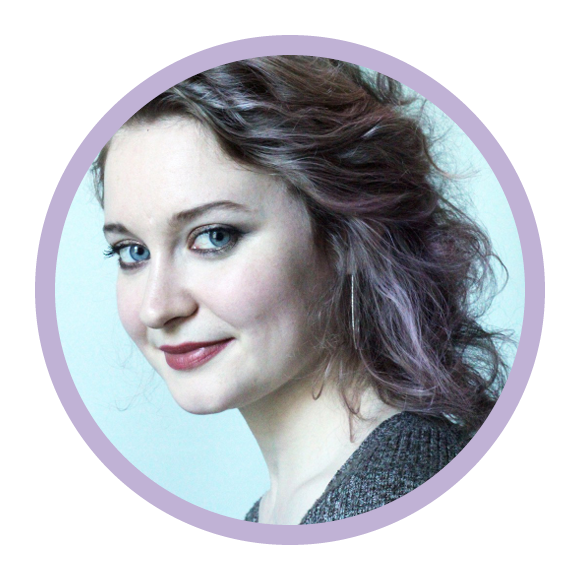
Katie Davenport
Costume Designer
Katie is a set and costume designer, based in Dublin.
She was awarded the Irish Times Irish Theatre Award for Best Costume Design in 2021 and 2022, and was nominated in 2019. She is Artist-in-Residence with Ireland’s National Dance Company, Luail (2025).
Katie has created scenography for many major theatre, opera and dance companies in Ireland. Notable designs include Safe House, Tartuffe, Elsewhere, The Fall of the Second Republic, This Beautiful Village, What Put the Blood (Abbey Theatre); Peter Pan, Endgame, Once before I go, The Visiting Hour, A Christmas Carol (Gate Theatre); La Traviata, Maria Stuarda, Griselda, The Magic Flute, The Tales of Hoffman (Irish National Opera); Audrey or Sorrow (Landmark Productions and Abbey Theatre); King | Shrine, Night Dances, Dolorosa, I am Ireland (United Fall); and Sentient, Demos, Yes and Yes (Liz Roche Dance Company). Katie also designs for Coiscéim, Junk Ensemble, Northern Ireland Opera, Theatre Lovett, Thisispopbaby and Rough Magic.
Recent international work includes Roberto Devereux in Bergamo, Italy (Donizetti Opera Festival, 2024), What We Hold in collaboration with Jean Butler in New York (Our Steps and Lovano, 2024) and Safe House by Enda Walsh at St Ann’s Warehouse New York (2025).
Katie was vice-chair of the Irish Society of Performance Designers 2020-2024, Designer in Residence at the Gate Theatre in 2017 and a resident of The Dean Art Studio 2022-23. She represented Ireland in Beijing NCPA at Evolving Design for Performance in 2016 and again at The Prague Quadrennial 2019 and 2023, a world exhibition of theatre design. In 2020 she participated in a cross-disciplinary group curated by Irish Museum of Modern Art (IMMA) and Project Arts Centre, Studio Interruptions, and contributed work to the publication Lights, Music, Exit. She contributed artwork to The Stinging Fly’s Winter 2023-24 cover. Katie has archived her set and costume work in a book: Archive #1 [2016-2021].
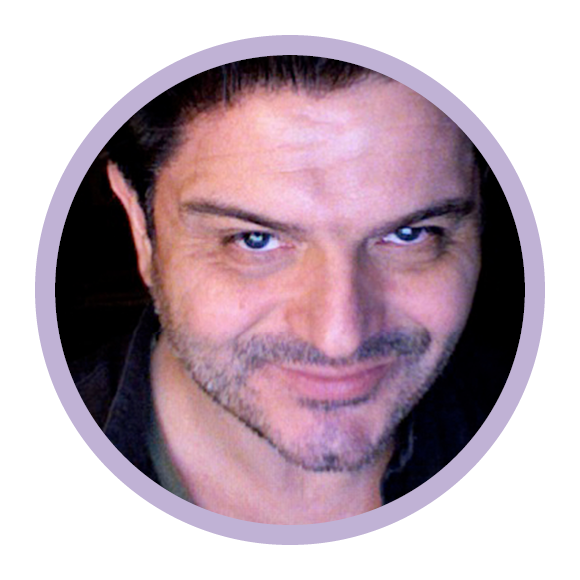
Paul Keogan
Lighting Designer
Paul’s previous collaborations with Landmark Productions include Happy Days, Blood in the Dirt (also set design), Postcards from the Ledge and Between Foxrock and a Hard Place.
His recent designs include Ainadamar (Metropolitan Opera New York, Detroit Opera, Welsh National Opera, Scottish Opera); King Lear (Kenneth Branagh Theatre Company, New York and London); Quake (also set design, for Once Off Productions and Dublin Theatre Festival); Masterclass (also set design, for Once Off Productions); The Sugar Wife, Tales from the Holywell (also set design), Portia Coughlan, Walls and Windows, Citysong (Abbey Theatre, Dublin); Translations (Abbey Theatre, Dublin and Lyric Theatre, Belfast); Dancing at Lughnasa, Circle Mirror Transformation, The Steward of Christendom, Constellations, The Visiting Hour, Hamlet, The Snapper, The Glass Menagerie, Molly Sweeney (also set design, for Gate Theatre, Dublin); Elektra (also set design, for Irish National Opera); The Gondoliers/Utopia Ltd (Scottish Opera); Our Country’s Good, Faith Healer, Love Love Love, The Plough and the Stars (Lyric Hammersmith); Doubt: A Parable (Chichester Festival Theatre); Sadie (Lyric Theatre, Belfast and BBC Arts), Shirley Valentine (also set design), Double Cross (Lyric Theatre, Belfast); I Think We are Alone (Frantic Assembly UK Tour); Cyprus Avenue (Abbey Theatre, MAC Belfast, Public Theatre NY, Royal Court); The Caretaker (Bristol Old Vic); The Gaul, A Short History of Tractors in Ukrainian (Hull Truck, UK); Far Away (Corcadorca Theatre Company, Cork); The Treaty, Duck Duck Goose (also set design, for Fishamble, Dublin); Semele, The Return of Ulysses (also set design, for Opera Collective, Ireland); Sama, Flight (Rambert); Lost, No Man’s Land (English National Ballet, Queensland Ballet).
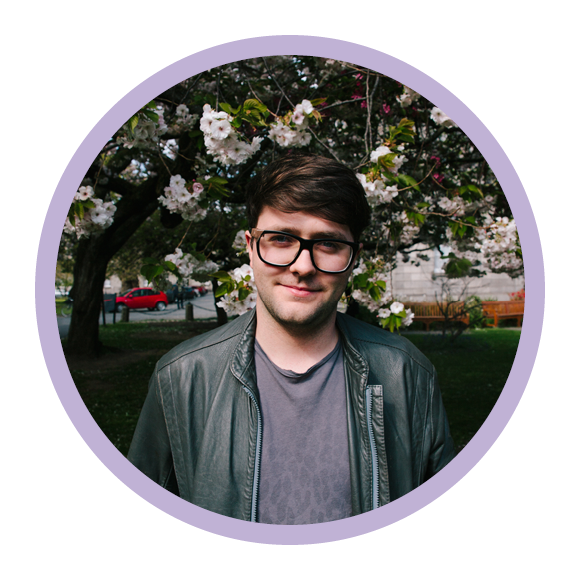
Kevin Gleeson
Sound Designer
Kevin is a composer, music producer and theatre artist from Tipperary. In the past decade he has completed 13 new works with award-winning theatre company Dead Centre including productions at Vienna Burgtheater, Schaubühne Berlin, Schauspiel Stuttgart, Stadsteater Göteborg and Gate Theatre Dublin. His work has toured to theatres in over 30 countries, including BAM, International Theatre Amsterdam, Seoul Performing Arts Centre, Hong Kong Cultural Centre, Southbank Centre London and Alexandrinsky Theatre St. Petersburg. Chekhov's First Play was awarded Best Sound Design at the 2016 Irish Times Irish Theatre Awards. Kevin produces and releases music under the moniker Sour Blood. His debut SUAS was released in August last year.

Stephen Wright
Audio Director
Stephen was a founding member and Artistic Director of Tinderbox Theatre Company. He directed the Irish premiere of Gibraltar Strait by Hugh Stoddart, and produced Stephen Rea’s production of Northern Star by Stewart Parker. For the BBC he worked across radio, television and film. Stephen produced and directed for Radio 3 and Radio 4, where his credits include Vampyre Man by Joseph O’Connor, Embers by Samuel Beckett, Bloody Sunday – Scenes From the Saville Inquiry and Dubliners with Stephen Rea.
His television credits include Holy Cross by Terry Cafolla, Paula by Conor McPherson and A Song for Jenny by Frank McGuinness. Film credits include Five Minutes of Heaven with Liam Neeson and James Nesbitt, and Eye in the Sky with Helen Mirren, both written by Guy Hibbert. As Head of Drama for BBC NI he commissioned The Fall and Line of Duty for BBC 2.
Stephen is currently Creative Director for Two Cities Television, where he is a Co-creator and Executive Producer on Blue Lights Series 1 and 2.
Eamonn Fox
Production Manager
Eamonn, a Galway native, is delighted to be working again with Landmark Productions on Krapp’s Last Tape. He is a freelance Production Manager/Event Controller, plying his trade in the theatre, arts, television and entertainment world as an escape from reality.
He has worked extensively with Landmark Productions, Druid Theatre Company, Galway International Arts Festival, Dublin Theatre Festival, St Patrick’s Festival, MCD, TG4, Ros na Rún, Shinawil and Irish National Opera.
He has toured extensively around the world but has a lot more of it to explore.
Ciara Gallagher
Stage Manager
Ciara Gallagher is a freelance Stage Manager based in Dublin and London. She studied Stage Management and Technical Theatre in The Lir Academy of Dramatic Arts, and graduated in 2016.
Her previous theatre credits include Reunion and Bedbound (Landmark Productions and Galway International Arts Festival); Audrey or Sorrow (Landmark Productions and Abbey Theatre); Krapp’s Last Tape (Landmark Productions); Our New Girl (Gate Theatre); Madhouse (Abbey Theatre); A Day in May (Pat Moylan Productions); Copper Face Jacks: The Musical; and Bite Me (Joanne McNally).
Ciara has recently graduated from NFTS having studied Assistant Directing and Floor Management in Film and TV. Her graduate film Killing Boris Johnson was selected for La Cinef at Cannes Film Festival 2023.
Ross Smith
Assistant Stage Manager
Ross is a Stage Manager based in Dublin, working primarily in theatre and opera.
Opera credits include Rigoletto (Bord Gáis Energy Theatre, Irish National Opera), William Tell and Faust (Gaiety Theatre, Irish National Opera); Salomé (Bord Gáis Energy Theatre, Irish National Opera); and L’Olimpiade (National Tour, Royal Opera House London and Théâtre Equillbre Switzerland, Irish National Opera).
Theatre credits include Krapp's Last Tape (Landmark Productions); Illness as Metaphor (Dead Centre); Boyfriends (Lemon Soap Productions); Distillation (IMMA); and Agreement and Piaf (Gate Theatre).
Ross has worked extensively across shows in Dublin Fringe Festival, Scene and Heard Festival and Dublin Theatre Festival.
Landmark Productions
Landmark Productions is one of Ireland’s leading theatre producers, which celebrated its 20th anniversary in 2024. It produces wide-ranging work in Ireland and shares that work with international audiences.
Led by Anne Clarke since the company’s foundation, its productions have received multiple awards and have been seen in leading theatres in London, New York and beyond.
It co-produces regularly with a number of partners, including, most significantly, Galway International Arts Festival, Irish National Opera and the Abbey Theatre. Its 33 world premieres - and counting - include new plays by major Irish writers such as Enda Walsh, Mark O’Rowe and Deirdre Kinahan, featuring a roll-call of Ireland’s finest actors, directors and designers.
Numerous awards include the Judges’ Special Award at the Irish Times Irish Theatre Awards, in recognition of ‘sustained excellence in programming and for developing imaginative partnerships to bring quality theatre to the Irish and international stage’; and a Special Tribute Award for Anne Clarke, for her work as ‘a producer of world-class theatre in the independent sector in Ireland’.
Landmark’s art-led work is funded by The Arts Council / An Chomhairle Ealaíon. Its international touring is supported by Culture Ireland.

From our Partners
Find nearby parking with UPark | Learn more>>
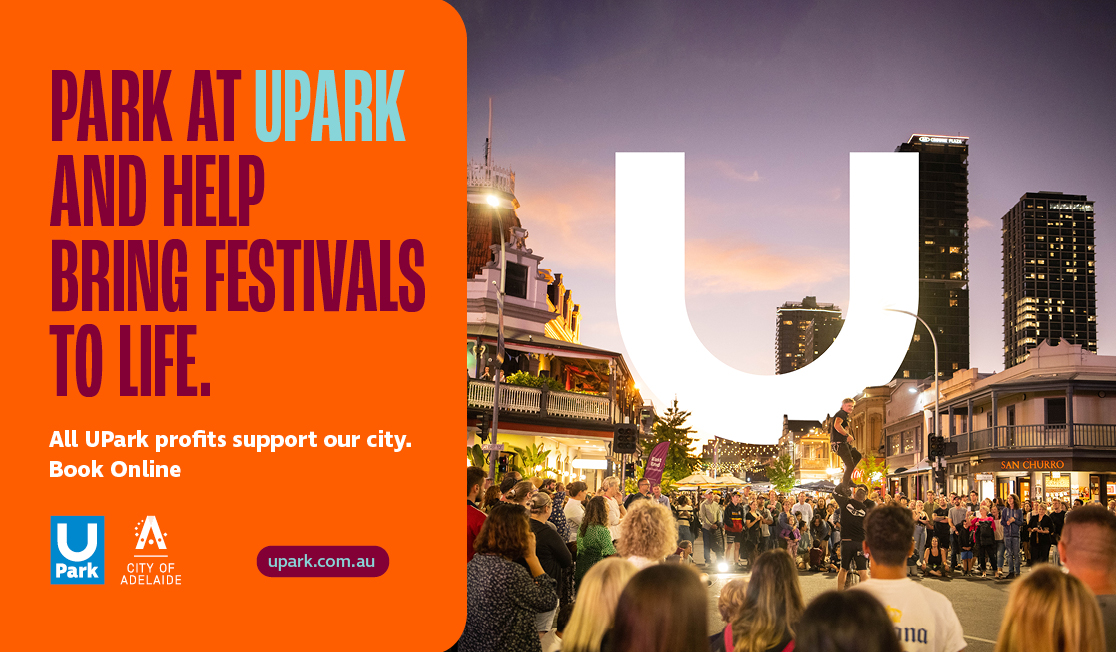
The UNIVERSITY OF ADELAIDE | Learn more >>

